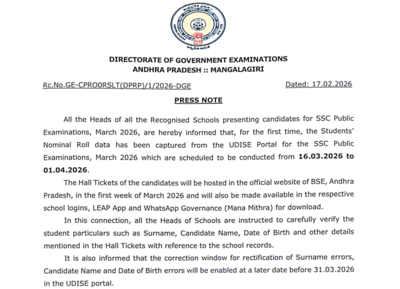Do SAT and ACT scores boost student performance? Princeton says “yes”

Princeton University has announced that, starting with the 2027–28 admission cycle, it will require all undergraduate applicants to submit SAT or ACT scores. This decision marks the end of a seven-year test-optional policy that began during the COVID-19 pandemic. The move aligns Princeton with several peer institutions, including Harvard, Penn, and Brown, which have reinstated standardized testing requirements in recent years. Yale has adopted a test-flexible policy, allowing students to choose from SAT, ACT, Advanced Placement, or International Baccalaureate scores. In contrast, Columbia University has opted to remain permanently test-optional.According to an internal review by Columbia as reported by New York Times post, the test optional policies are not leading to diminishment of performance, whereas Princeton believes otherwise.
Rationale behind Princeton’s decision
Princeton’s decision to reinstate standardized testing requirements follows a comprehensive review of five years of data from its test-optional period. The university found that academic performance was stronger among students who chose to submit test scores compared to those who did not. As reported by The Daily Princetonian, the university said in a statement that, “The decision to resume testing requirements follows a review of five years of data from the test-optional period, which found that academic performance at Princeton was stronger for students who chose to submit test scores than for students who did not.”This finding underscores the predictive validity of standardized tests in assessing academic success. The university emphasized that standardized testing is just one element of its comprehensive and holistic application review process, with no minimum test score requirements for admission. All information in each student’s application is considered in the individual context.
Princeton’s test-optional era and holistic admissions
In June 2020, Princeton University temporarily suspended its standardized testing requirement for the 2020–21 application cycle due to the COVID-19 pandemic and limited access to testing centers. The university subsequently extended this test-optional policy for the 2021–22, 2022–23, and 2023–24 admissions cycles, allowing applicants to submit scores voluntarily.The Class of 2029 represents the first cohort to experience the COVID-19 pandemic before entering high school. Approximately 22% of these students chose not to submit standardized test scores, according to The Daily Princetonian’s Frosh Survey. The only exceptions to this requirement are active military personnel, whose access to testing sites may be restricted. Princeton emphasized that “active members of the military who opt to apply to Princeton without an SAT or ACT score will not be at a disadvantage in our process,” the University said in a press release.Despite the temporary pause on test submissions, Princeton has consistently maintained a holistic admissions review. According to the university, “Standardized testing is just one element of the university’s comprehensive and holistic application review. There are no minimum test score requirements for admission. All information in each student’s application is considered in the student’s individual context.” This approach underscores the institution’s commitment to evaluating applicants on a wide range of academic, personal, and extracurricular criteria rather than relying solely on numerical metrics.
Advantages of standardized testing
- Predictive validity: Standardized tests have been shown to be reliable indicators of future academic performance, helping institutions identify students who are likely to succeed in rigorous college coursework.
- Objective benchmarking: These tests provide a consistent measure across diverse educational backgrounds, allowing for fairer comparisons among applicants from various high schools and regions.
- Enhanced access for disadvantaged students: Contrary to concerns that standardized tests disadvantage underrepresented groups, some studies suggest that these tests can serve as an equalizer, providing a platform for students from disadvantaged backgrounds to demonstrate their academic capabilities
Disadvantages of standardized testing
- Cultural and socioeconomic bias: Critics argue that standardized tests may favor students from higher socioeconomic backgrounds who can afford extensive test preparation, potentially disadvantaging low-income and minority students.
- Narrow assessment scope: Standardized tests primarily measure specific academic skills, potentially overlooking other important aspects of a student’s abilities, such as creativity, leadership, and resilience.
- Test anxiety: The high-stakes nature of standardized testing can induce significant stress and anxiety in students, potentially affecting their performance and well-being.
ConclusionPrinceton University’s decision to reinstate SAT and ACT requirements reflects a broader trend among elite institutions to return to standardized testing as a component of their admissions processes. While the move aims to enhance the predictive accuracy of admissions decisions, it also reignites debates about fairness and equity in college admissions. As the landscape of higher education continues to evolve, institutions must carefully consider the role of standardized testing in fostering a diverse and academically capable student body.






